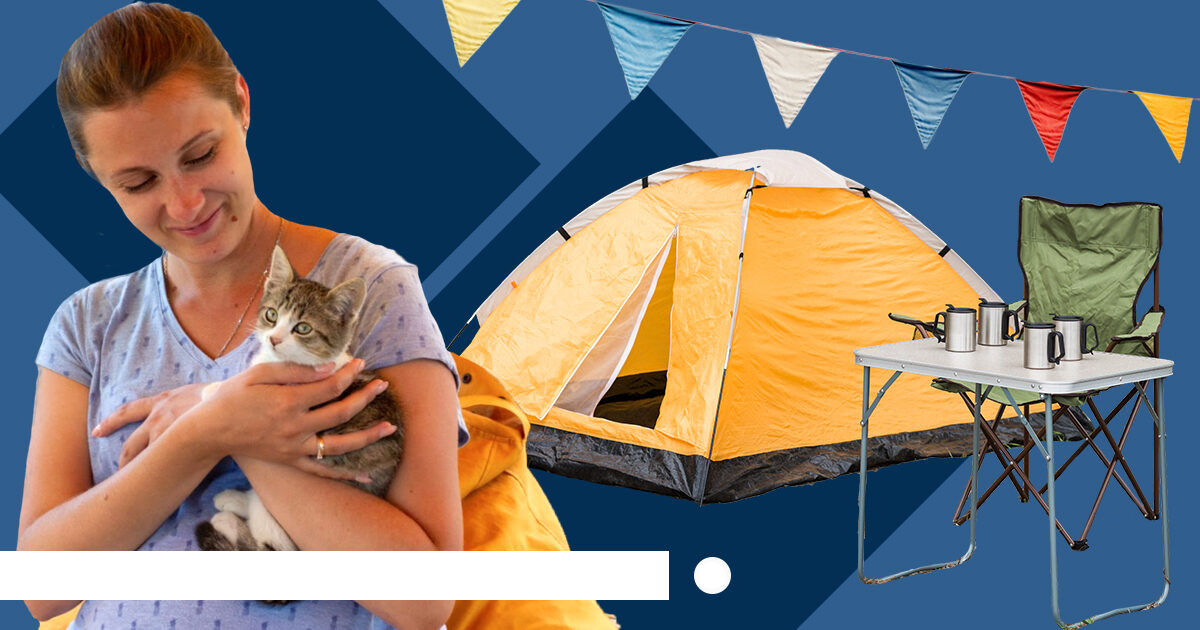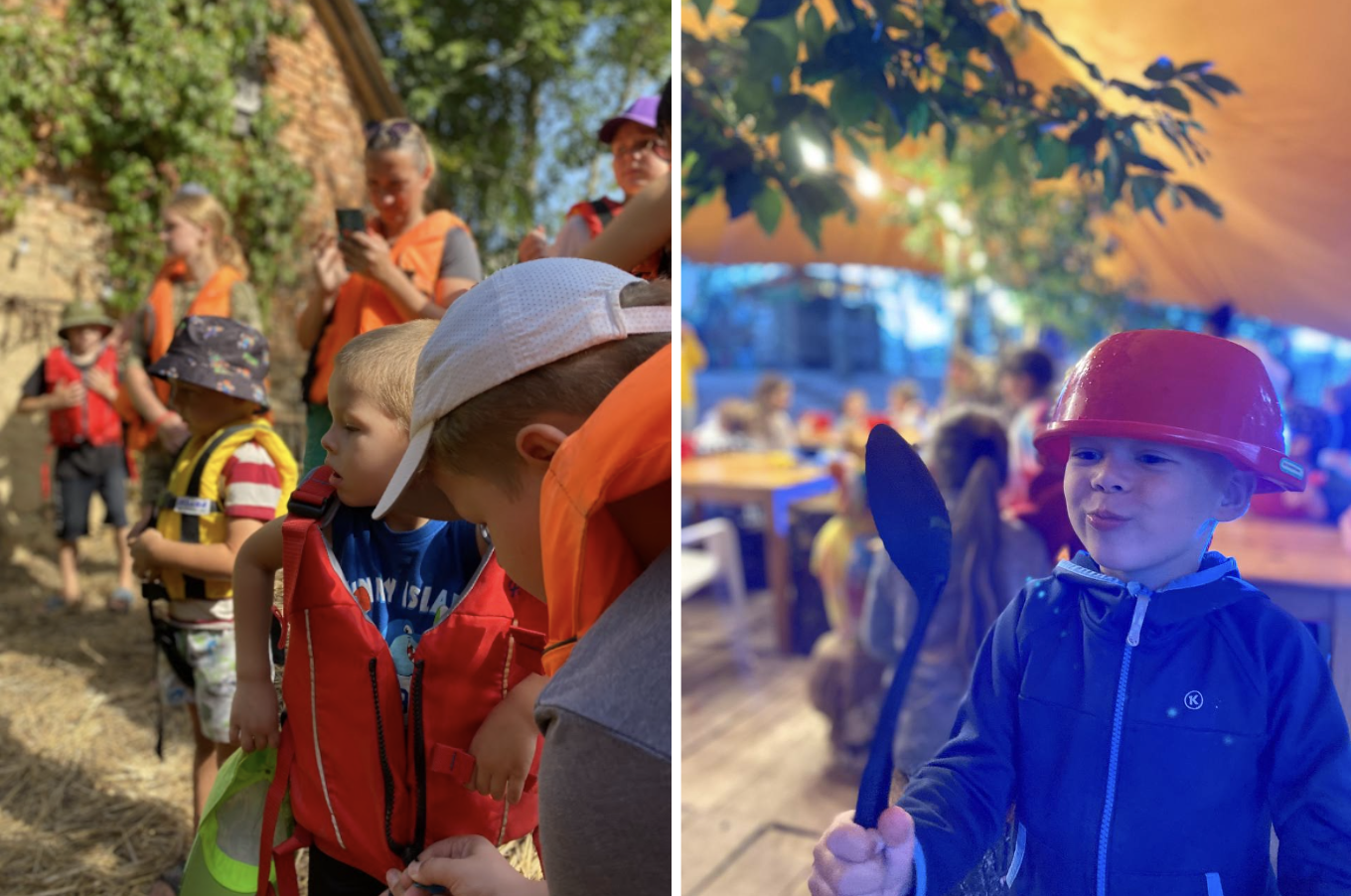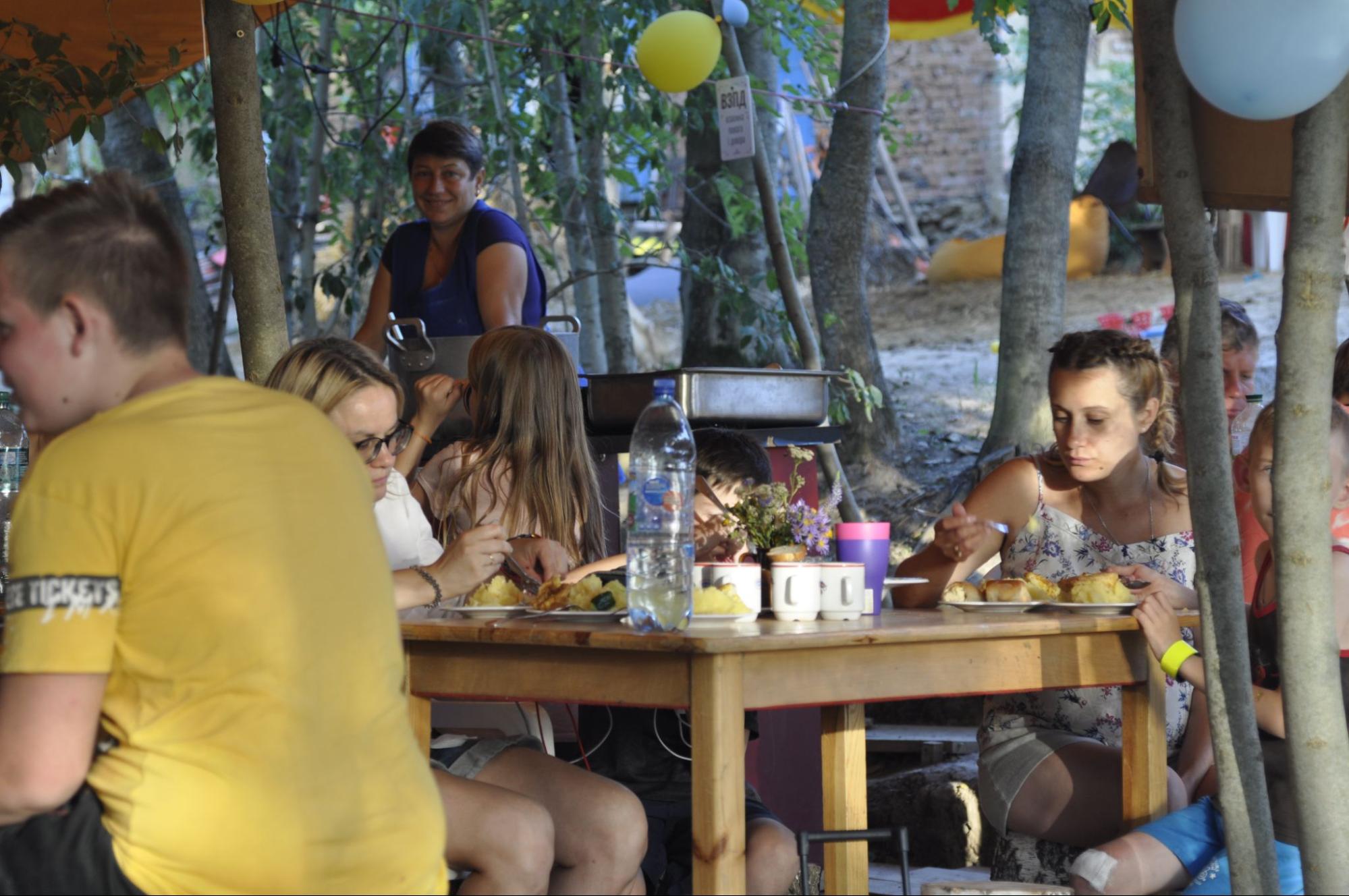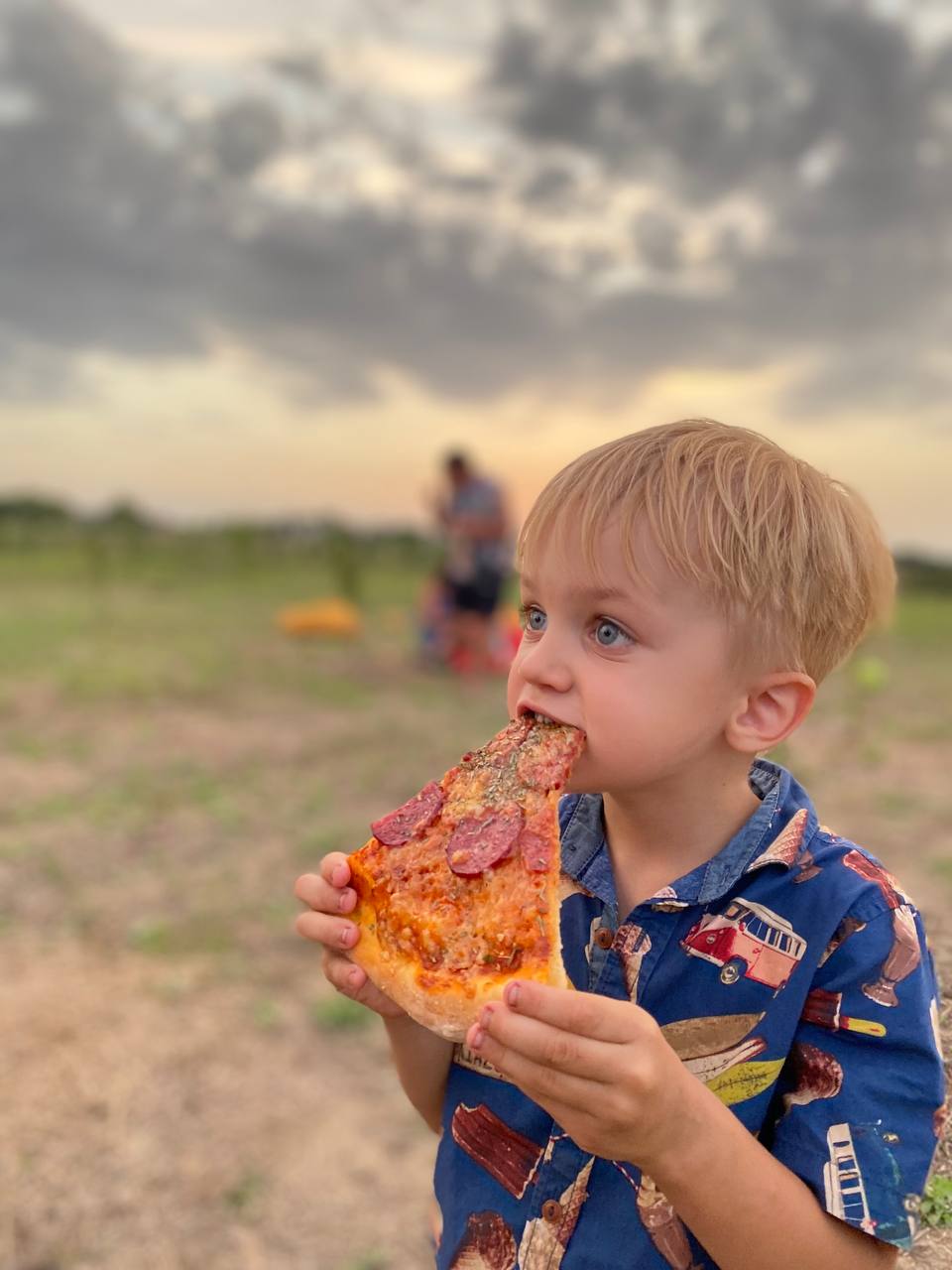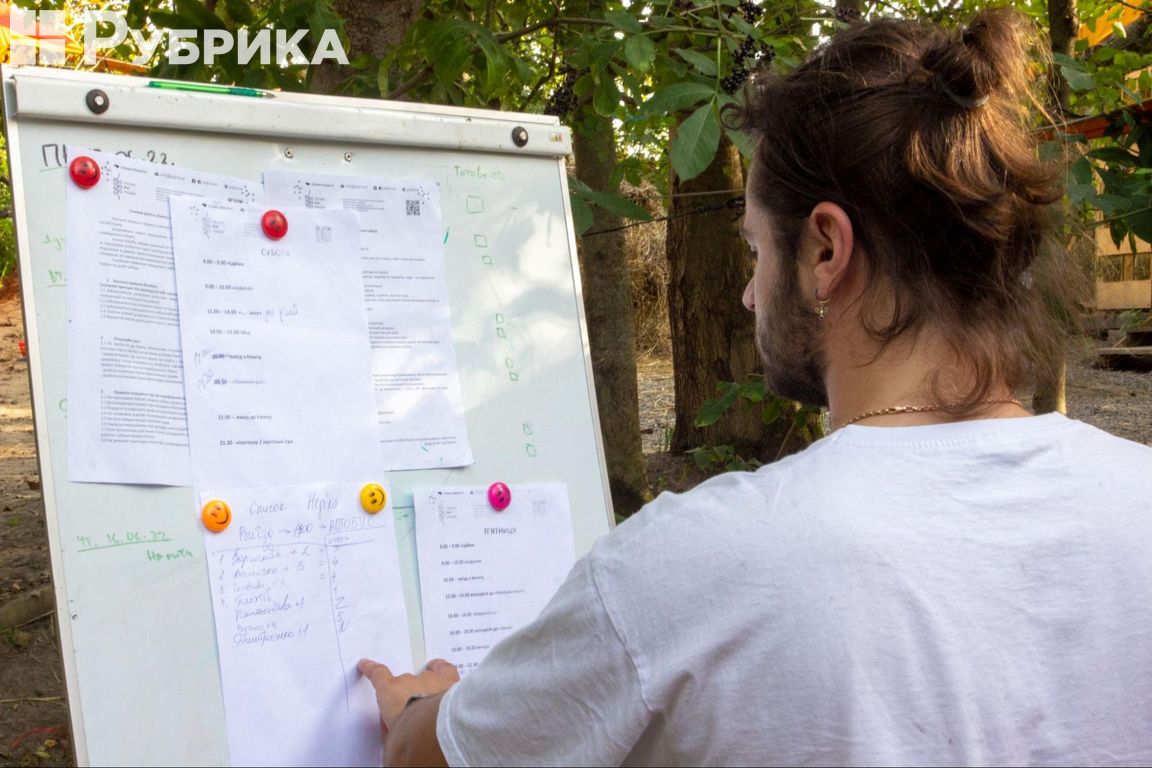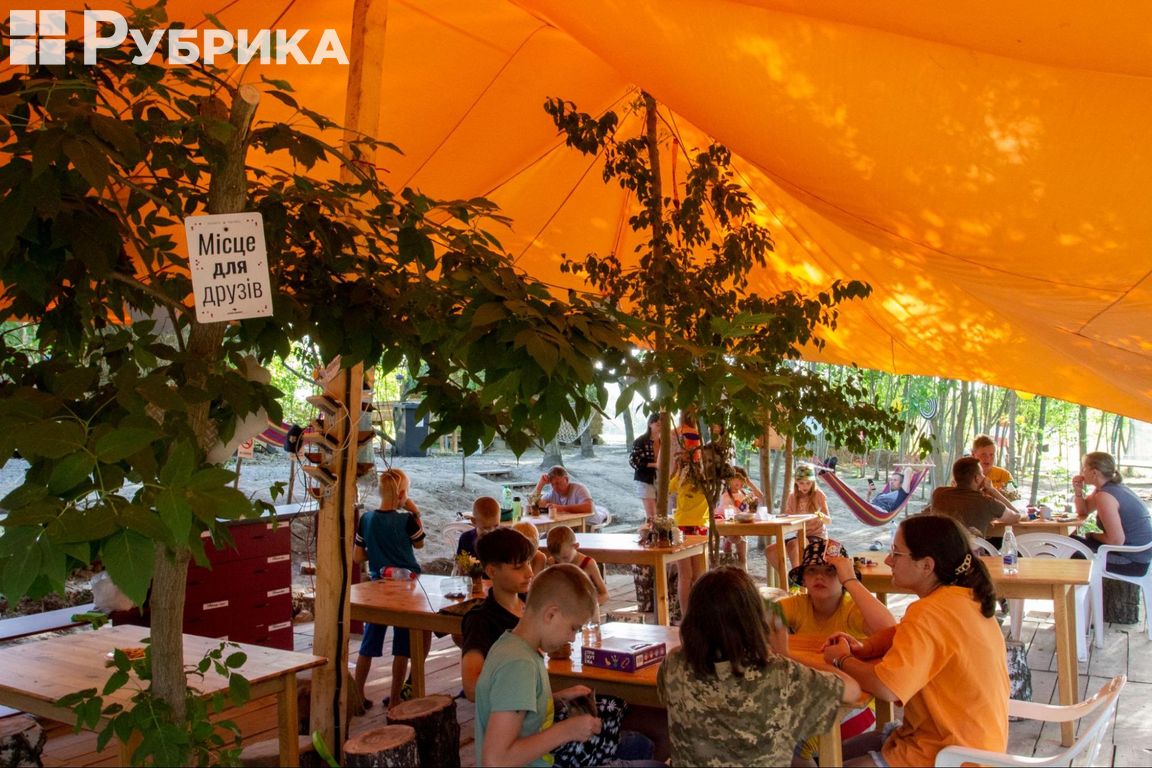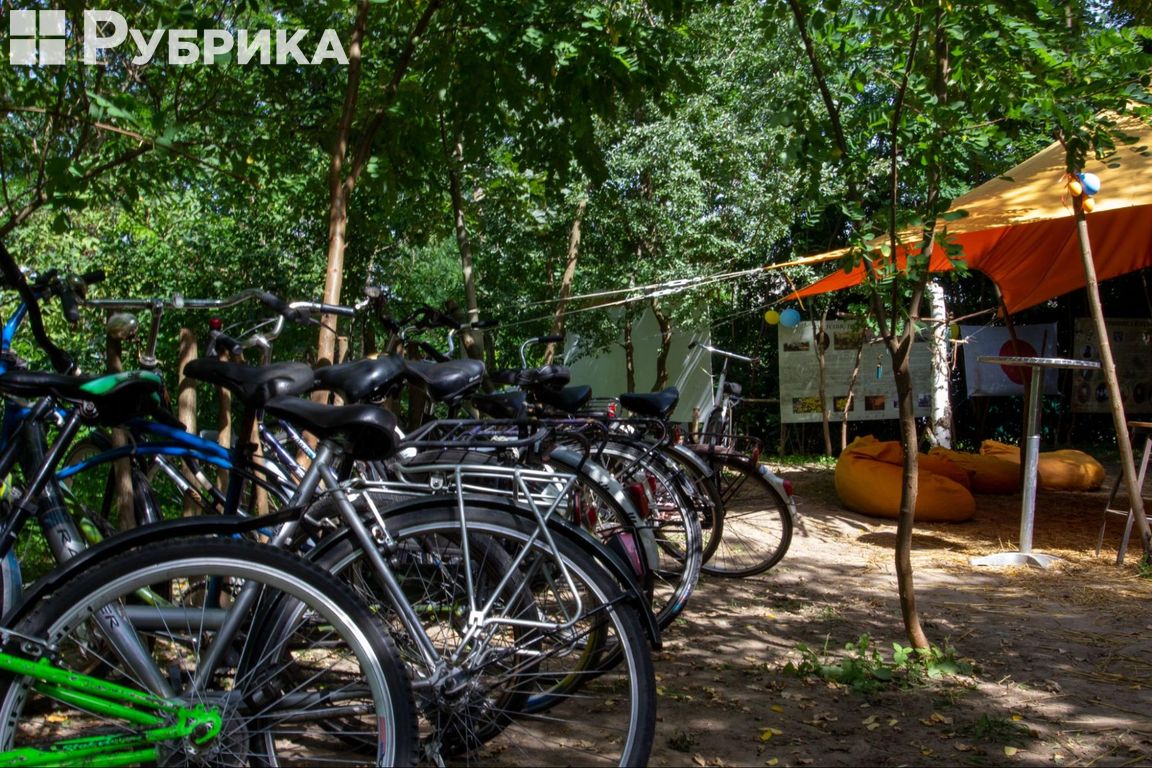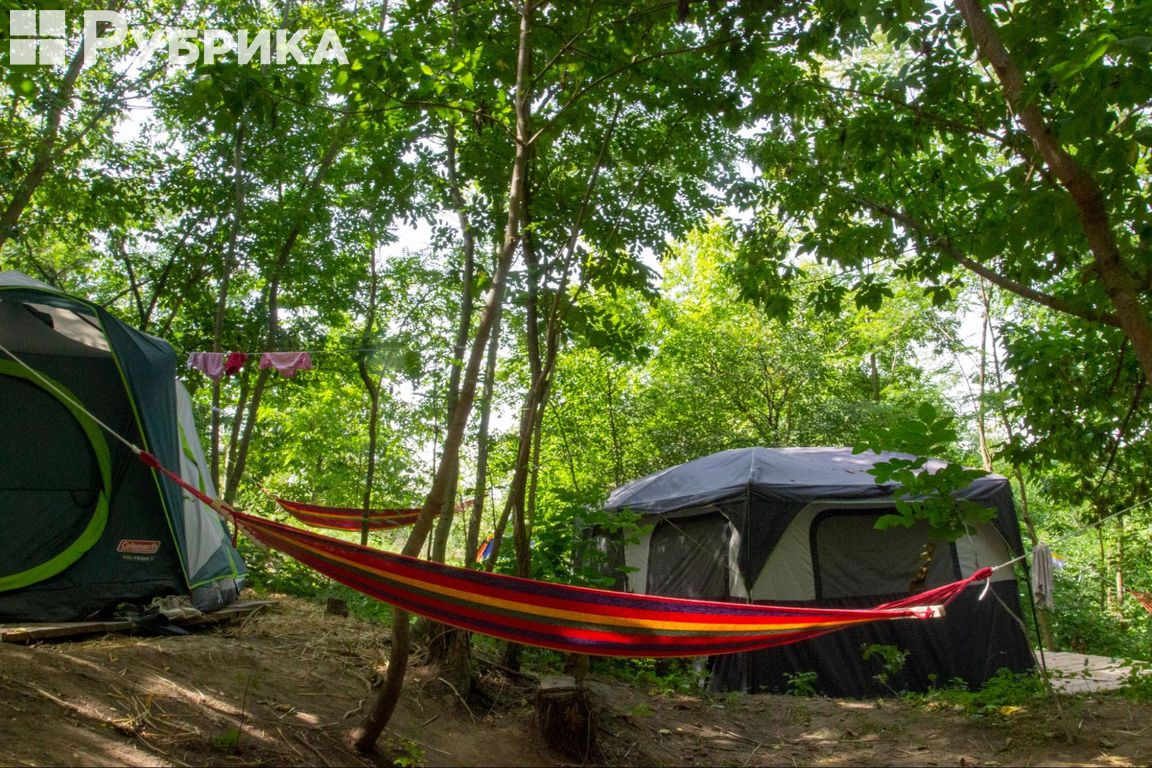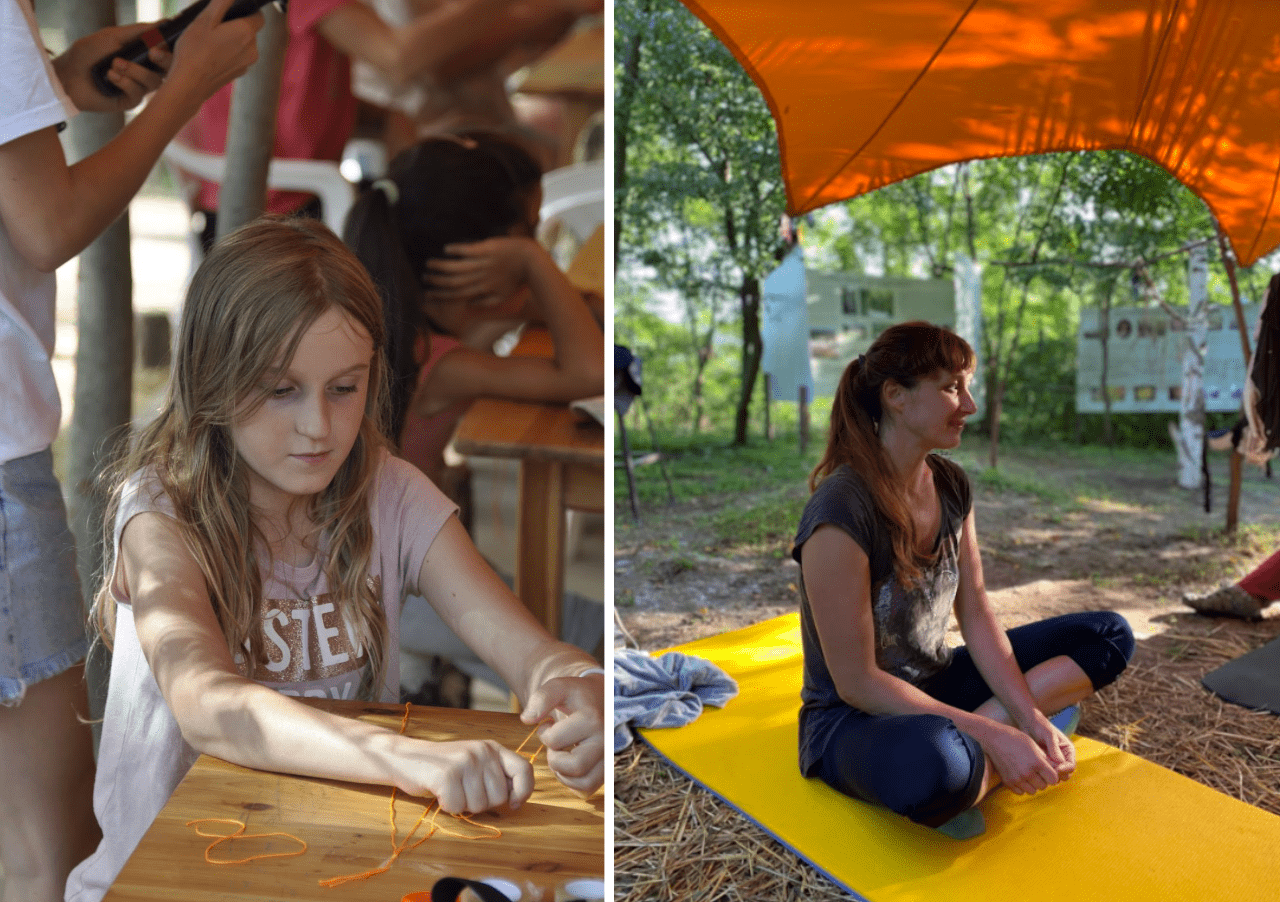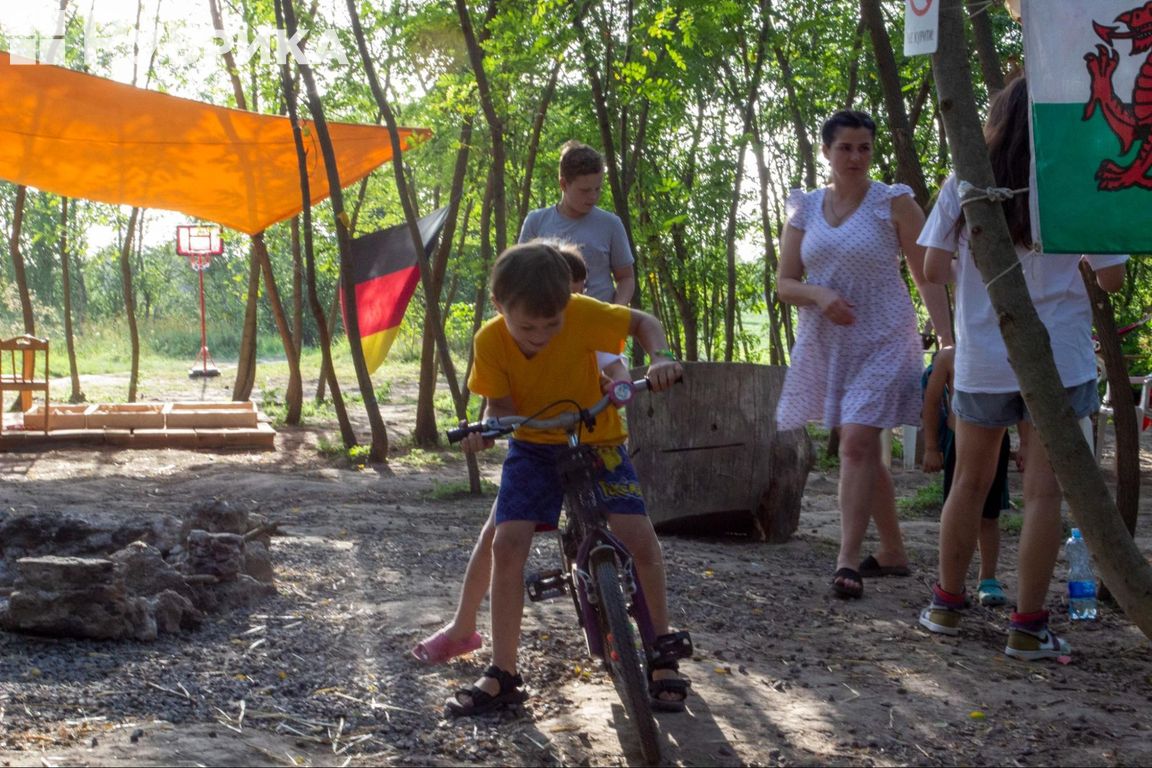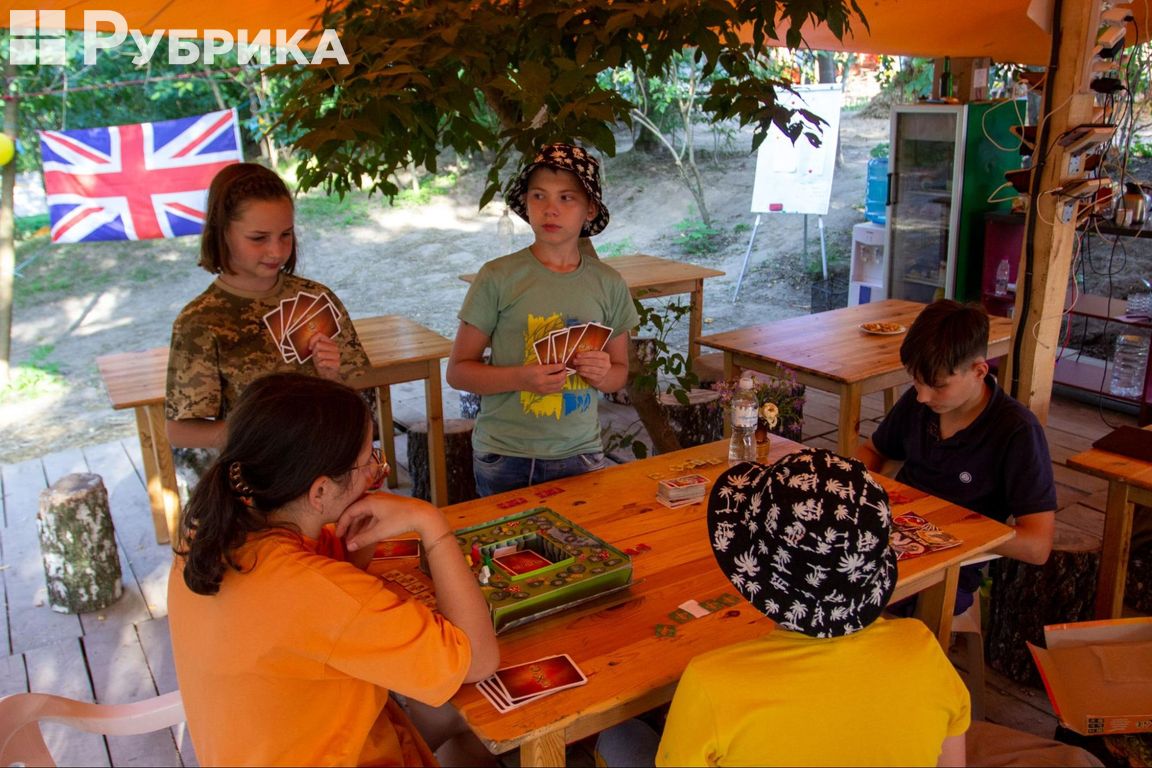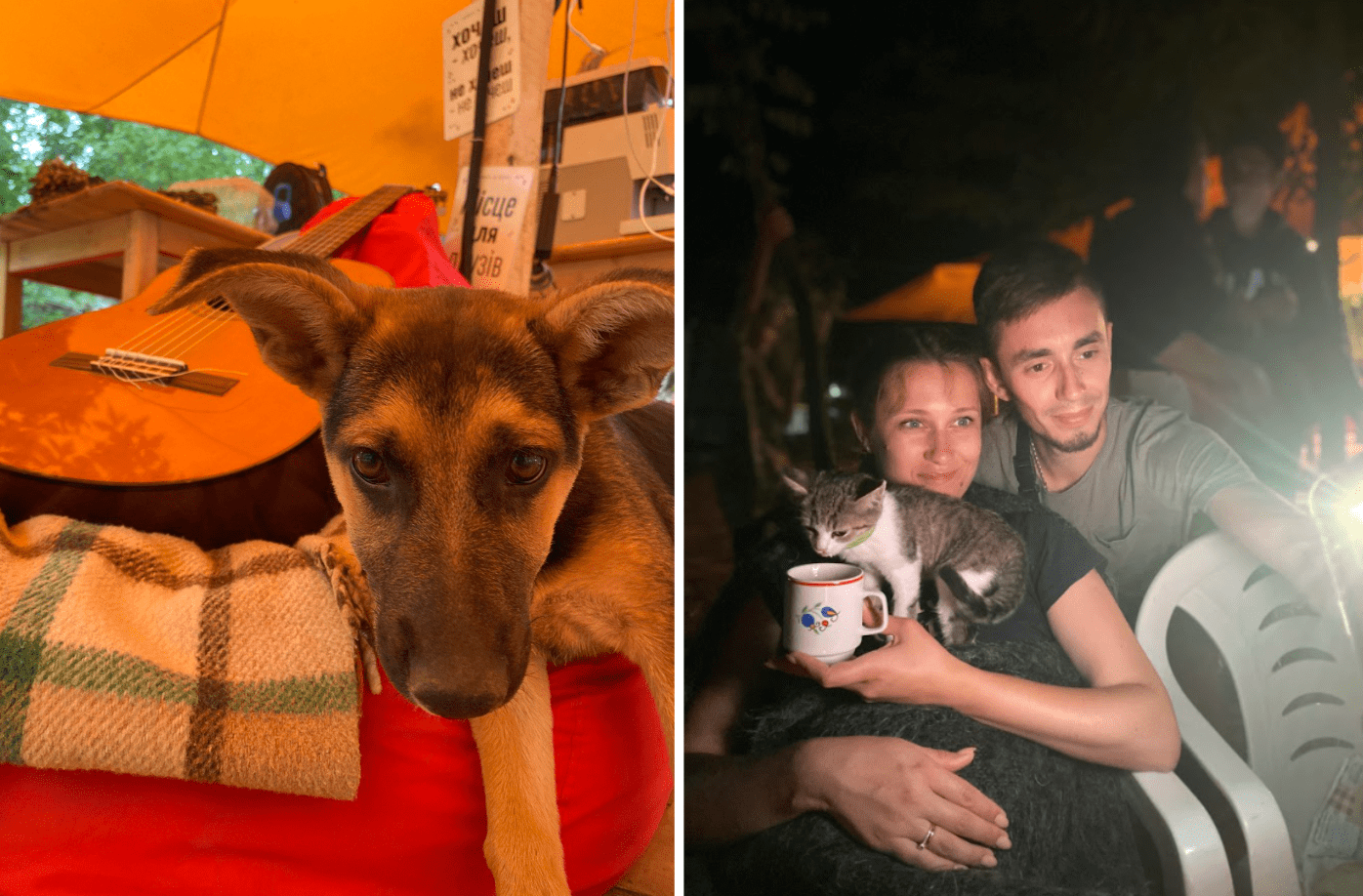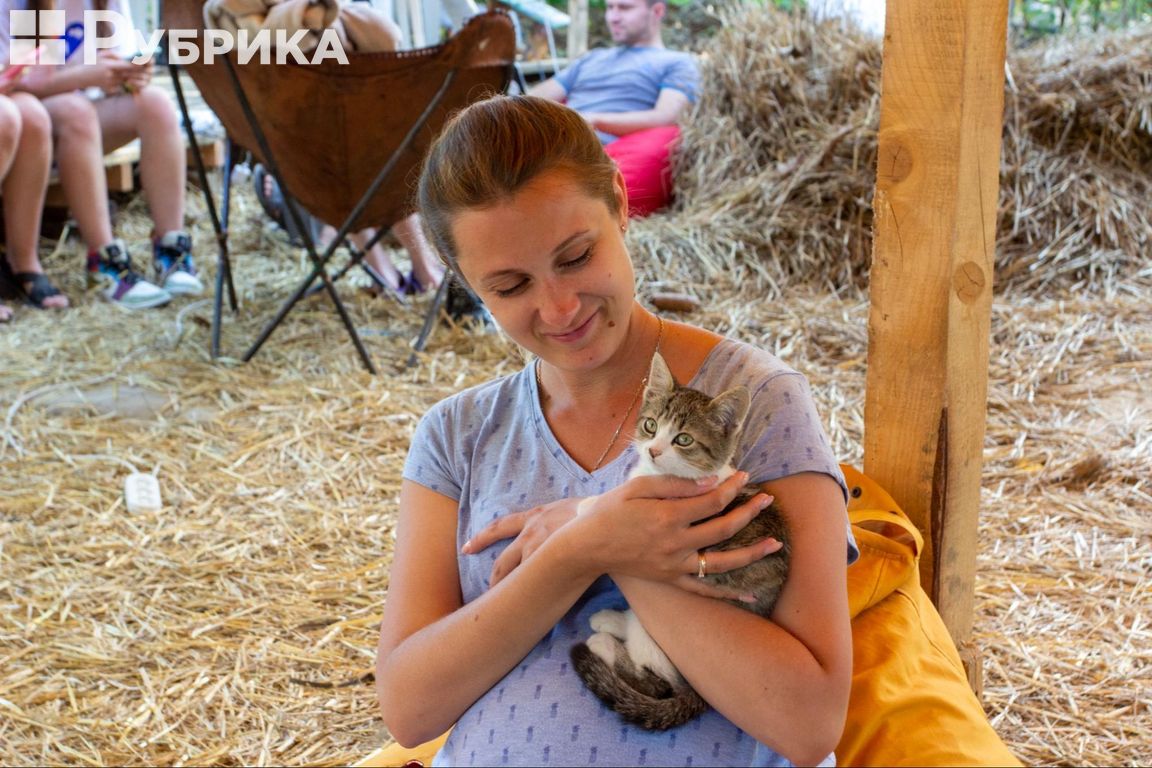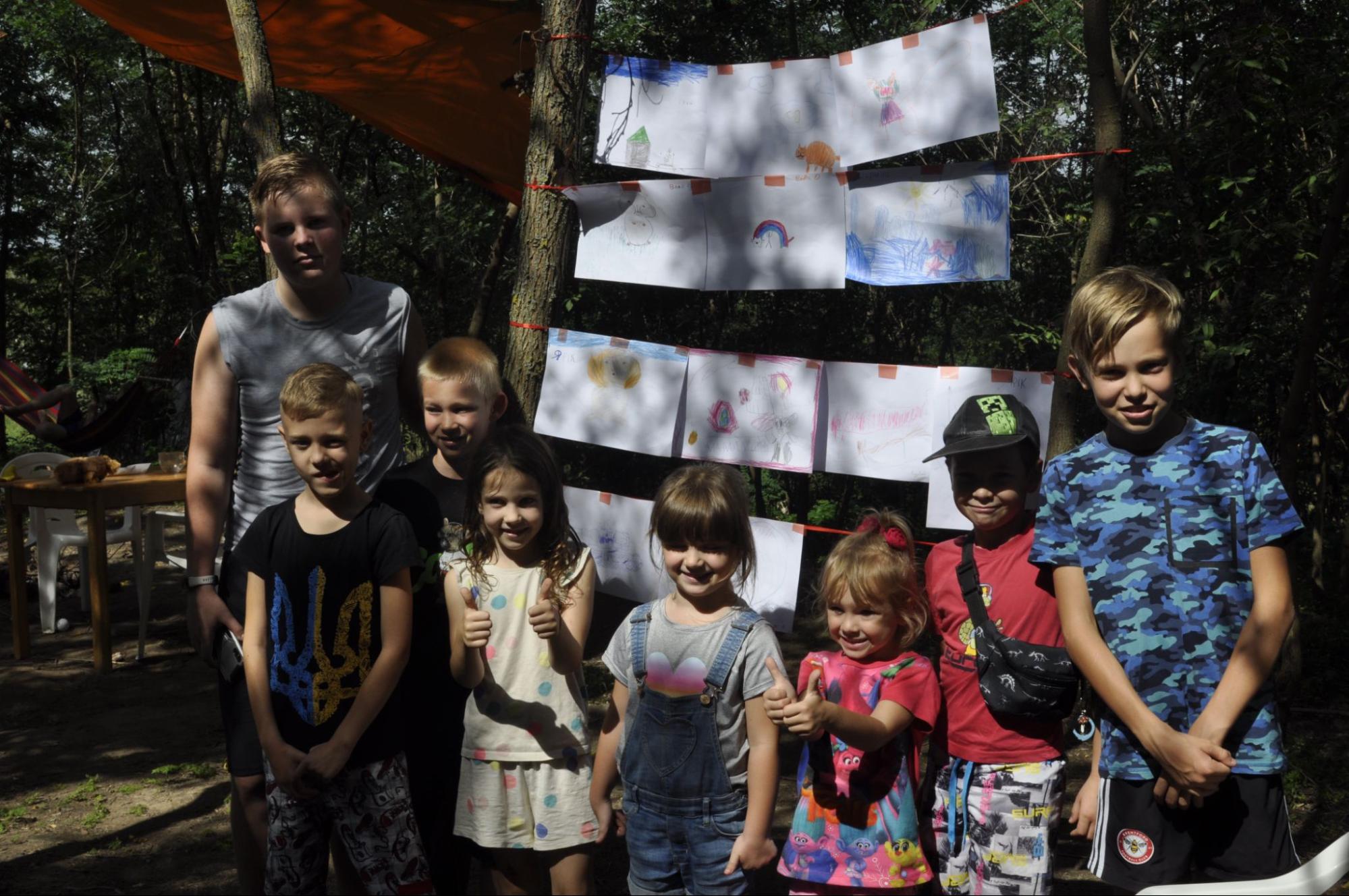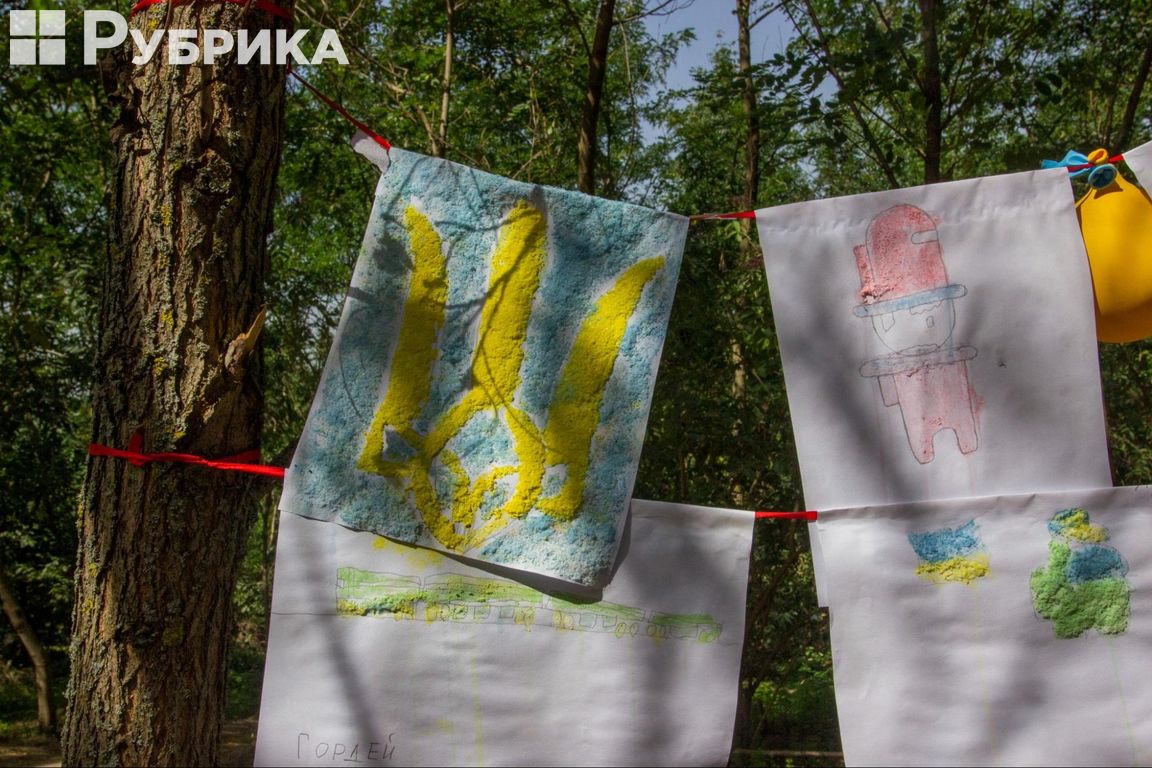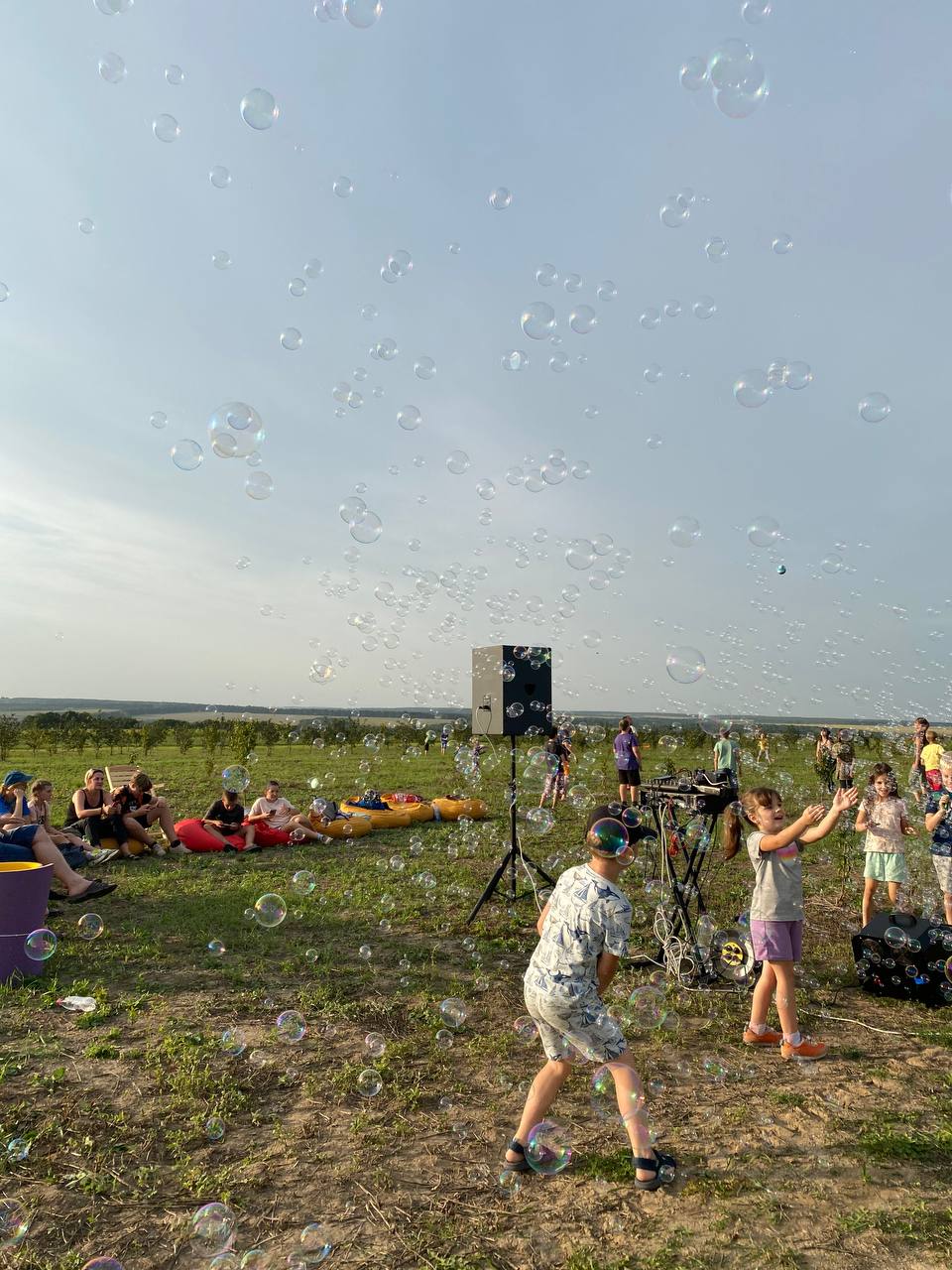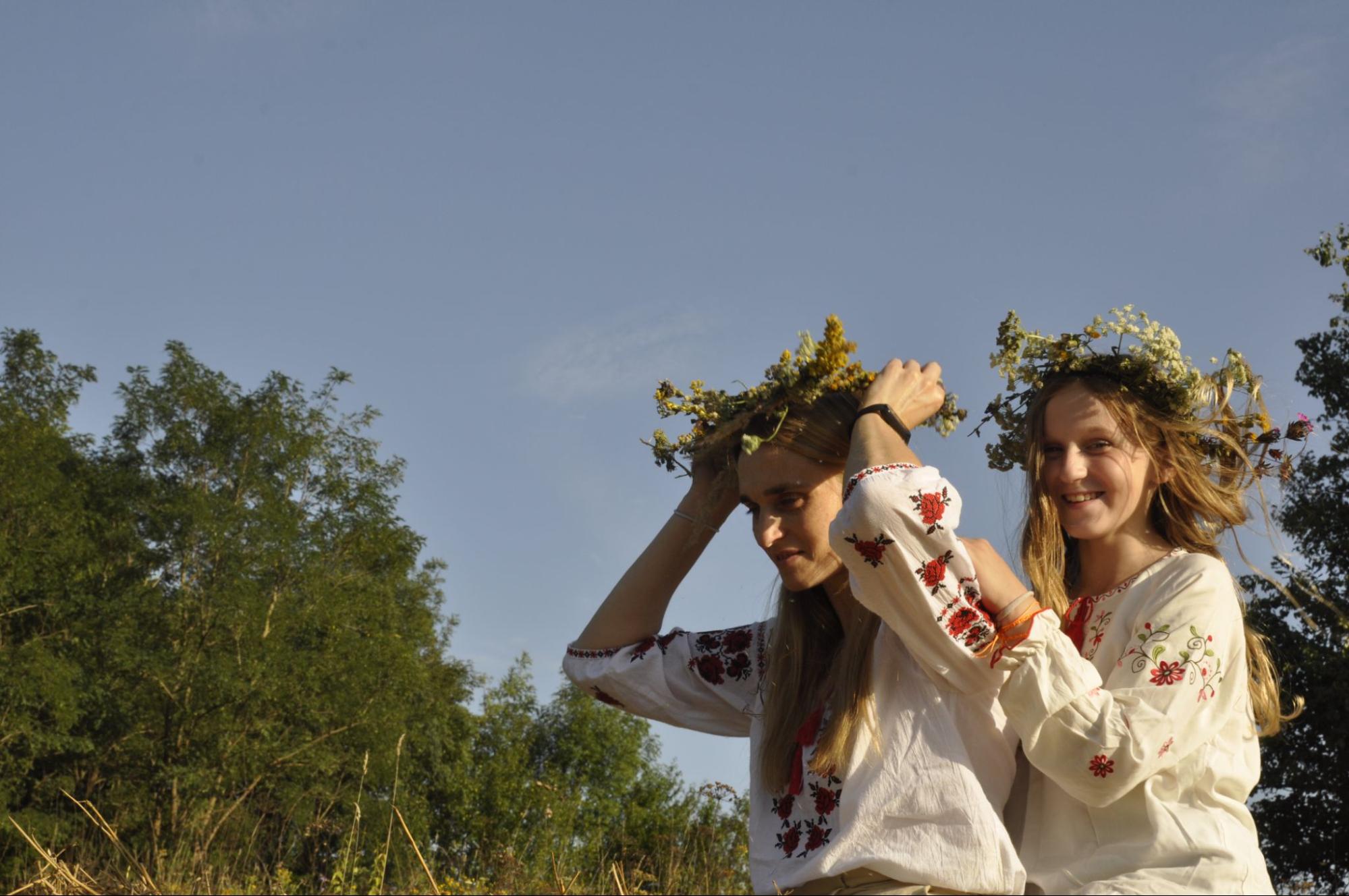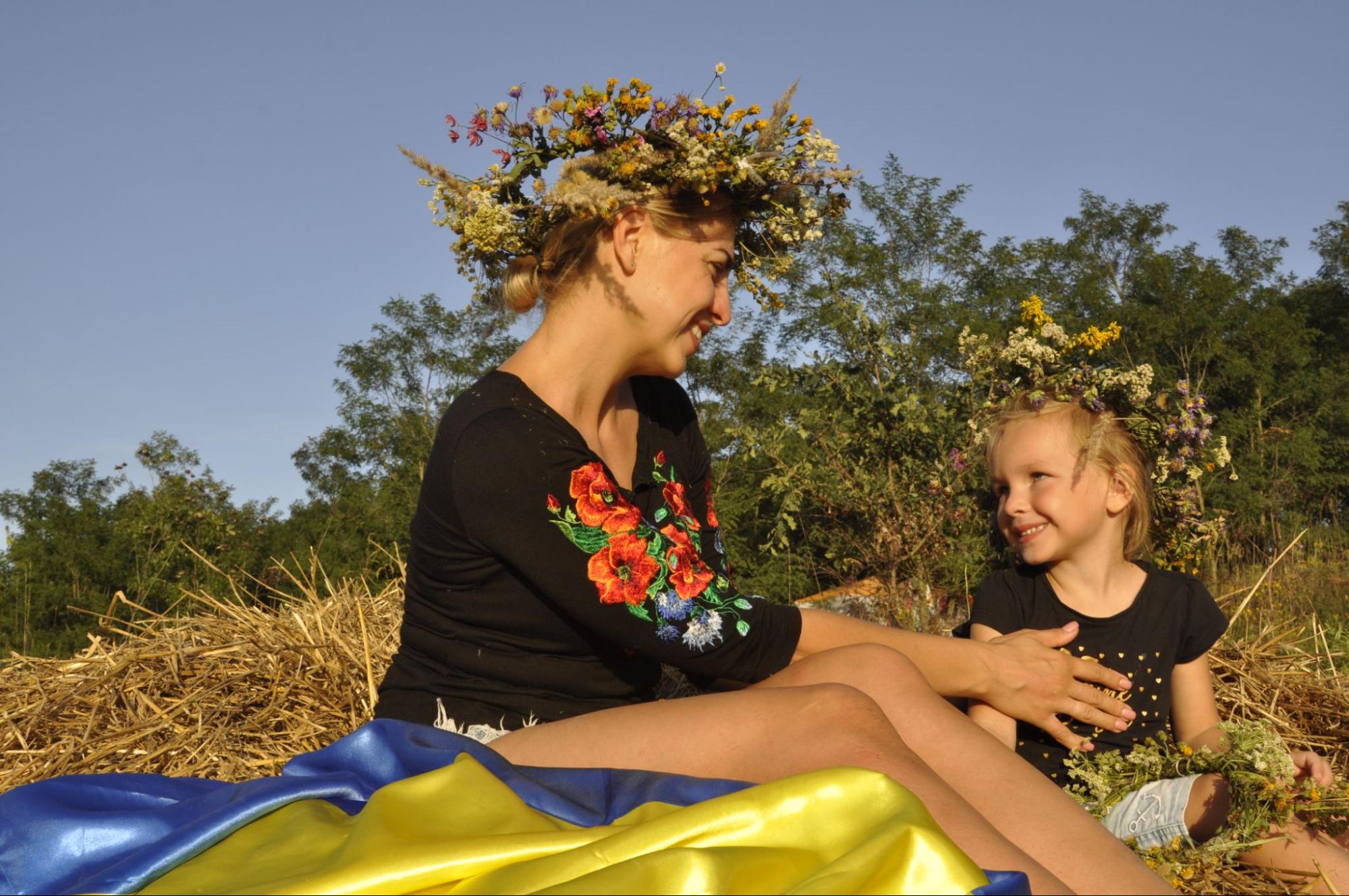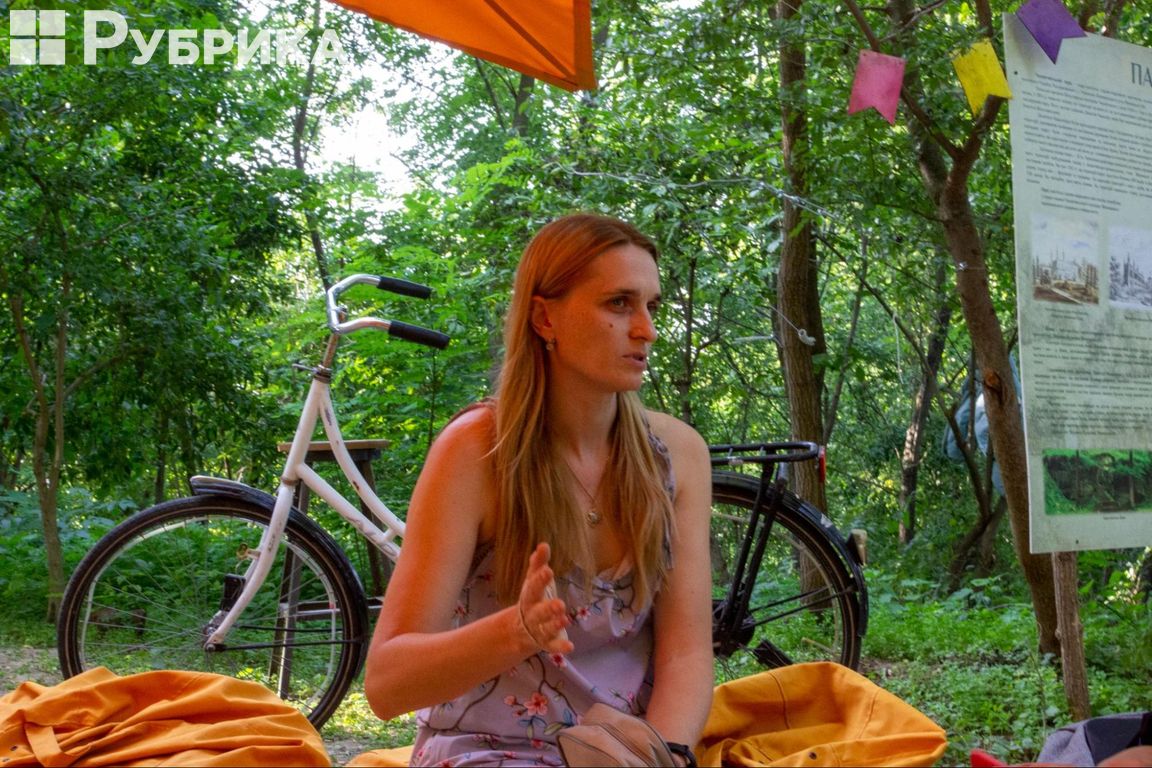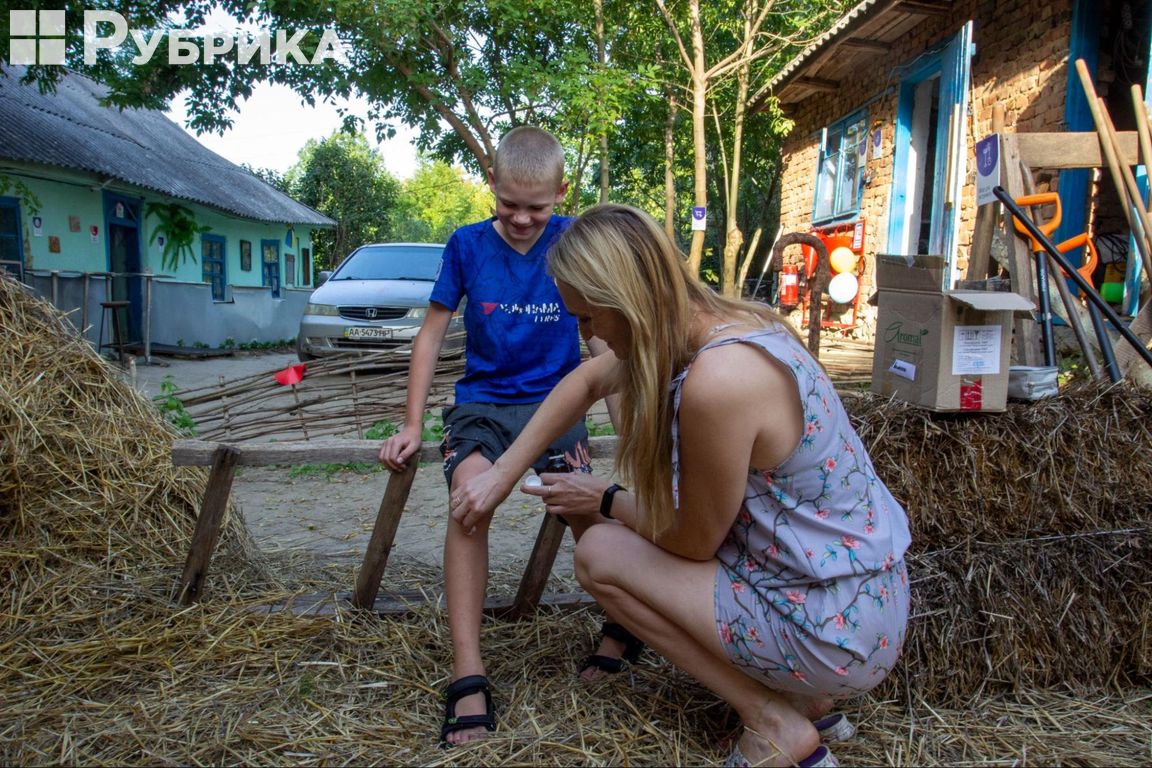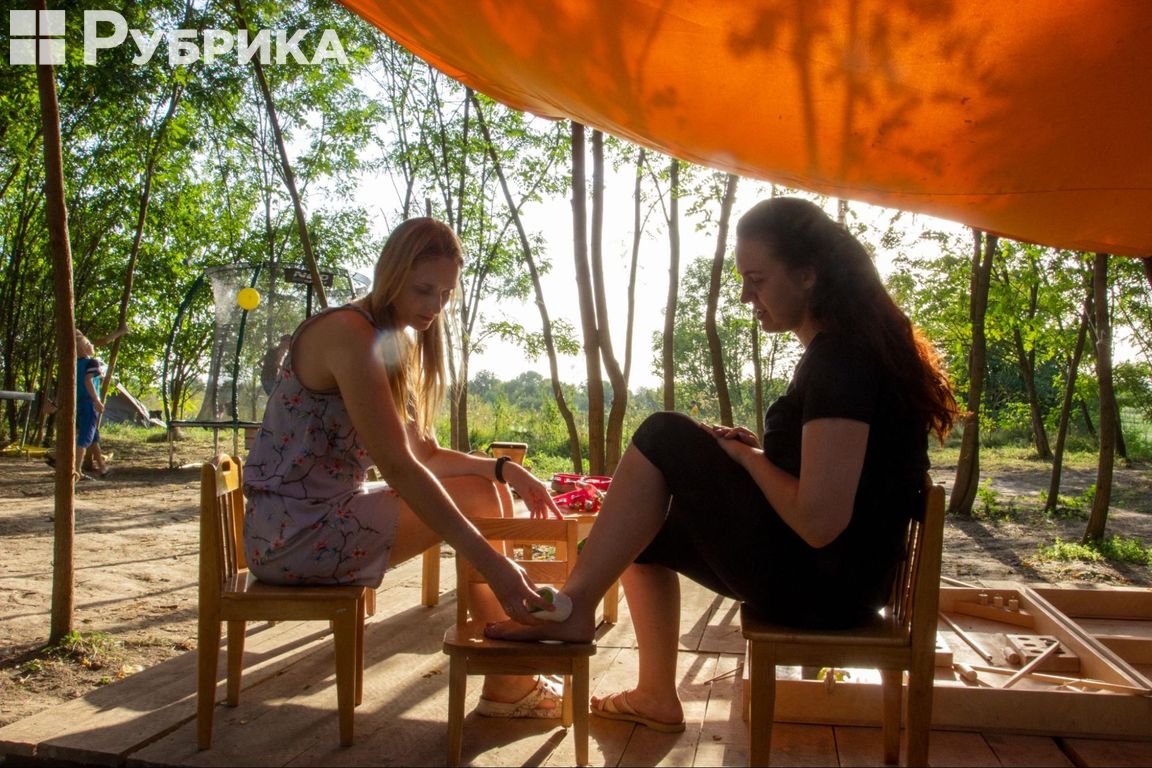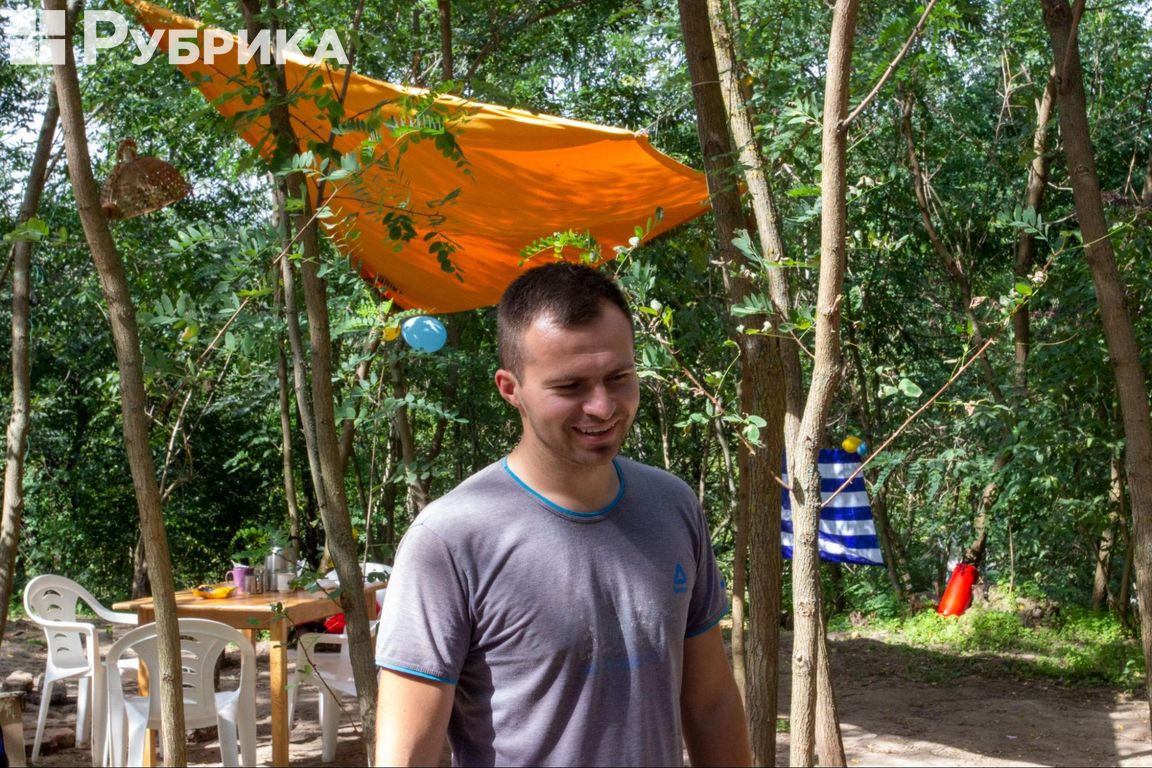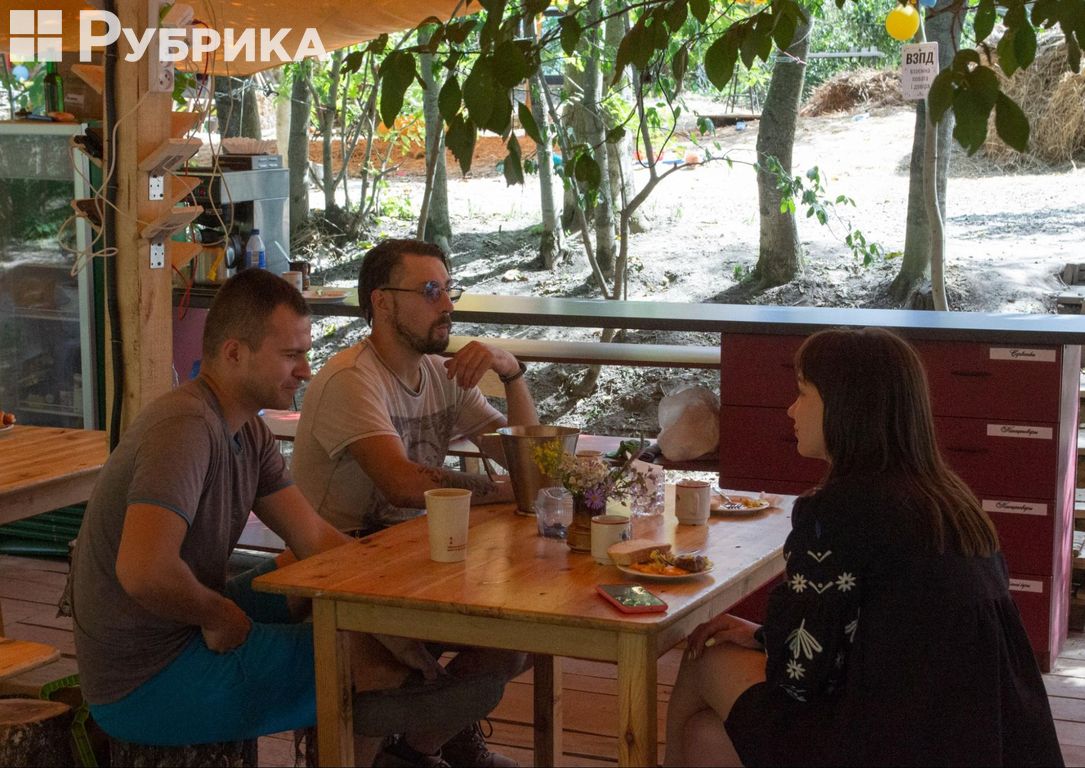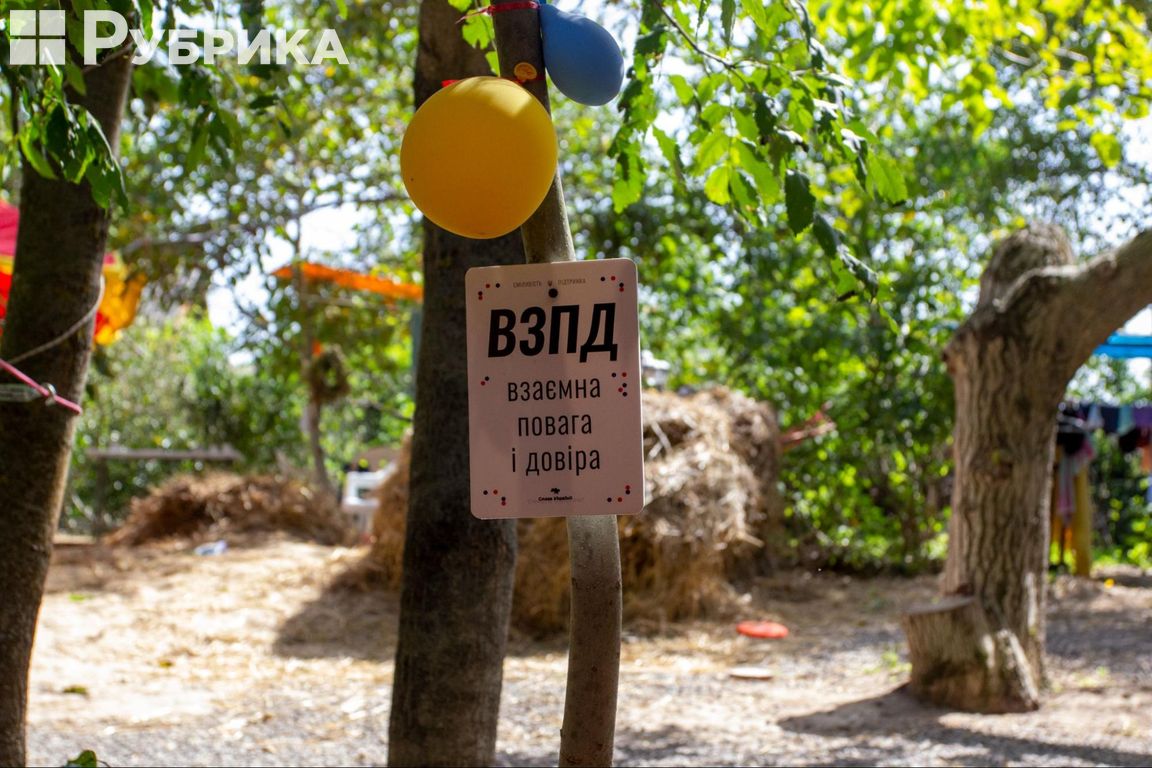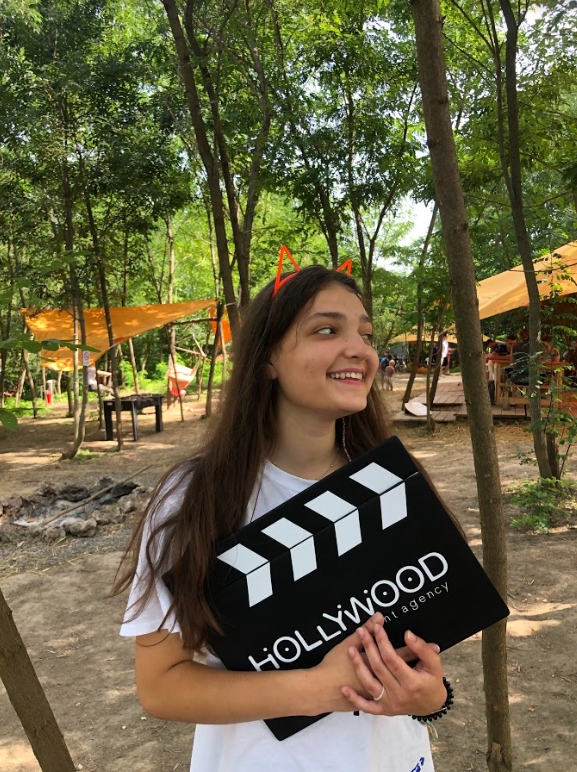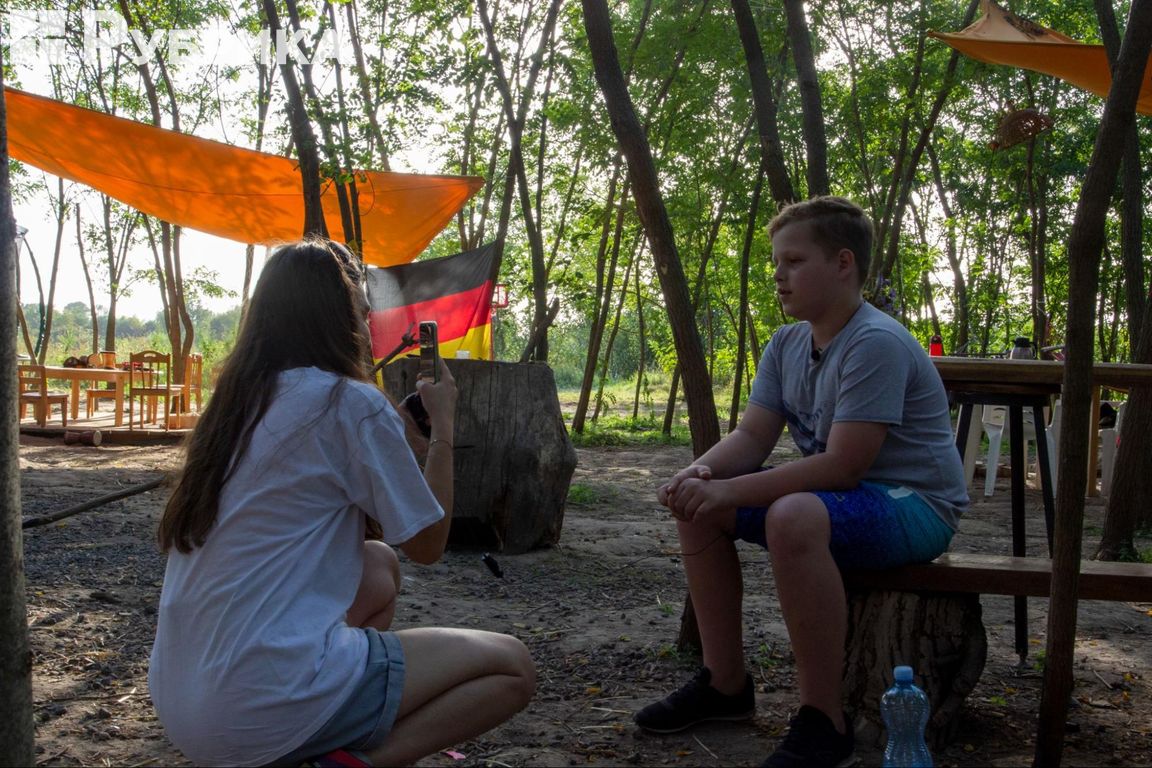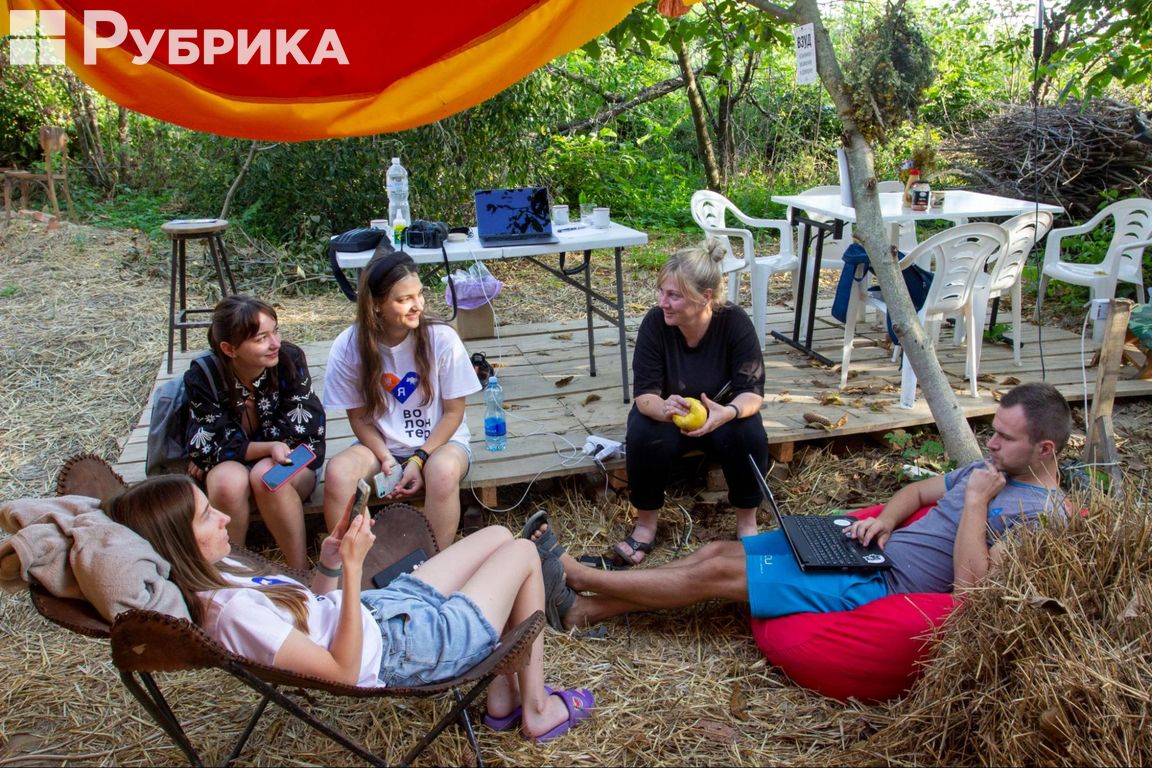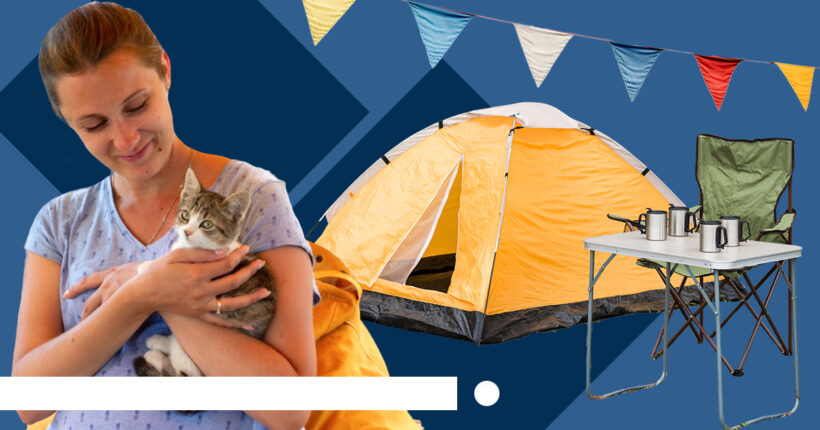
What is the problem?
A study by the International Organization for Migration (IOM) shows that more than 6.6 million people in Ukraine are internally displaced persons. People are forced to adapt to new conditions and need help to recover physically and emotionally.
Half a year of full-scale war in Ukraine changed the mental state of Ukrainians—the experience of the past affects us. Someone has lost a house or relatives, and someone has loved ones in the occupation or the Armed Forces of Ukraine. We are worried, anxious, and nervous. But we must stay strong emotionally to fight the enemy.
Comprehensive approaches to restoring our resilience help us find inner resources and adapt to new conditions. Rubryka found one of the places that help Ukrainians to recover in the Vinnytsia region. The article explains how camping and working with psychologists help people who currently cannot return home.
What is the solution?
Restart Camping is unique because it was created specifically for people who left flashpoints and aimed at psychological relief. Psychologists and inventors work here and come up with various activities for children. They also provide free food and provide comfortable tents for overnight stays.
This week, which is how long each camping lasts, 55 people live in the camp. Of them, 25 are children, and 30 are adults. It is the third run of the Restart camp in the Vinnytsia region in the village of Severynivka. People from Kherson City and the Kherson region, Luhansk region, and Donetsk region come here. Now they all temporarily live in other cities of Kirovohrad, Vinnytsia, Zakarpattia, or other areas.
"People want to take a break from their current problems and find new connections. But in most cases, the main motivation is the children," says Ostap, the camping organizer. "Parents want them to take a break from gadgets and make new friends."
Ostap is 22 years old. When the full-scale war began, he and his father, Maksym, left Kyiv to take the family abroad. They stayed in Vinnytsia. Here Maksym met with his partner Oleh, who has a public organization in the city. Then they came up with the idea to create a camp that could help Ukrainians recover psychologically in the conditions of russia's full-scale invasion.
The camp was created in the forest, in the middle of nature. This area is private property that Maksym's partner gave for this initiative. Since May, the territory has been cleaned, tents have been put up, and the camp has gradually developed.
"My father and I like to travel, hike, and live in tents. We used this knowledge to build a campsite," says Ostap.
Work began here at the beginning of May, and within a month and a half, the camp looked like it does now.
From experience, Ostap and Maksym built this campsite, understanding what people need for a comfortable life in tents.
"It's banal: a washing machine and the opportunity to immediately hang things. People don't always think through everything to such minor things. We had rainy weather for several days, and everything got wet. We prepared for this and had a supply of dry clothes donated by caring people. If someone without needed experience organizes the camp, they may not think of such details."
Maksym built the camp on-site, and Ostap was responsible for marketing, PR, and distribution on social media.
Three psychologists work with vacationers. One of them is Hlib; he's also an art therapist. He has been practicing this for more than 11 years, and since 2013 he has been working in a psychiatric ward. Together with others, he is on the road to recovery because he is also a migrant from Kostiantynivka, Donetsk region.
He says that people here are entirely diverse. Many of them keep their emotions and feelings to themselves. It is also indicated by questions: anxiety, apathy, depression, sadness, and lack of confidence in the future.
"Most people talk about how they miss home, a new place of residence, a new job, and compare their affairs now and before the war. Group exercises help well to disclose problems. But some visitors only do it at personal consultations, usually held after group consultations."
How does it work?
The camp organizers see its mission first to help people gain peace and more confidence, then to gradually develop activity and strength to start planning their activities for the future.
Children are running everywhere here, all divided into groups and each doing something of their own: someone is cutting out of paper, someone is riding a bicycle, someone is resting on hammocks, and someone is reading. And you can hear stories everywhere.
The camp also houses a dog, Java, who was taken from a shelter in the Vinnytsia region. There's also a kitten, Lina, who was rescued after being pulled off a tree. They are the children's best friends, especially Sofia, who initiated for animals to be in the camp. Together, Java and Lina are called Javelina and help vacationers recover.
On the camp's territory, you can see various wreaths made of wildflowers and children's drawings.
Restart has a volunteer work area, a large screen for movies and seating, table tennis, and football. Vacationers live in tents that differ in capacity (6-8 places) and shape.
The schedule in the camp looks like this:
- Everyone wakes up for breakfast, which lasts from nine to ten.
- Next, group or individual work with psychologists or some activity from inventors begins.
- Event organizers organize parties and master classes. Together with children, they weave bracelets and bouquets of sweets or create paper or bubble shows.
- From two to fourteen, everyone has lunch.
- After that, everyone goes about their business or rests. For example, hammocks are the perfect place to relax in the afternoon!
- After 4 p.m., most vacationers go kayaking or play soccer at the local school's stadium.
- Dinner is from 19:00 to 20:00. After dinner you can dance.
- At half past ten, if people are willing, they turn on the movie on the big screen. Someone is playing board games or just chatting. Then there is a rebound.
A structured day, like in a children's camp, a lot of rest and closeness to nature helps to find inner strength. It gives a sense of stability and predictability—something that many Ukrainians have been missing in recent months.
Living life again
People who rest here are all different. They have distinct behaviors, reactions to situations, and attitudes towards them. Most displaced people come here depressed; they want to go home. They often close off; because of this, it is not easy to adapt.
"There was a problem with the tents for a while. They all have 6-8 places, so when a mother and child come to us, they cannot live separately. They can only if they have their tent with them. We warn about it. Although it is sometimes difficult for people, later they cannot part. It used to happen that those people who met after the start of the war came here together. Some people found their neighbors in Kherson or some other village, but they met here," says Ostap.
Ostap emphasizes that camping is about creating new connections. A child being friends with another child unites the parents as well. The man says he sees people learning to live life again, often without even realizing that the thoughts that have consumed them since the start of the full-scale war are beginning to dissipate.
Olena is from the city of Debaltseve, also in the Donetsk region. She is 44. In 2014, Olena and her family moved to Kharkiv, and now they temporarily live in the Vinnytsia region. Olena has three children, the eldest, Kateryna, is 21, and she is a volunteer. The family decided to join the camp thanks to their daughter, who found information about camping.
"Strangers are ready to save you. Before, we did not do and did not accept so much goodness from others. Now we all do such things. Activities and work with psychologists divert attention from that everyday life. And it helps to get back on your feet. We must come to a victory, not as psychologically ill people, but strong and able to work for the country's recovery."
In this camping, Olena is not only a vacationer but also a nurse-physiotherapist. She performs massages with various portable equipment. She says it also helped her find new customers.
To maintain communication after the event, the organizers created a Telegram group. There's also a chat for all "Restarters," where all vacationers can be added if they wish. The conversation from the first visit is still active. After the camp, "people for people" were often found in these chats; for example, someone was looking for a graphic designer for cooperation and found one through new acquaintances right here.
Distracting from the war
Vadym is 24 years old. He comes from the Vinnytsia region but has been living in Kyiv for the past seven years. Having a legal education, he drew up insurance contracts for all visitors. He also instructs people in kayaking and runs the football for children. Kostia is with him now. He is 30 years old and from Odesa. Before this project, he was engaged in forest ethnic festivals. He had experience working in a restaurant and prepared about 50 pizzas in half a day during one of the camping weeks.
Both found an ad for volunteering and saw an opportunity to discover something new and help others.
Vadym says that now, during the war, it feels safe here. Upon arrival, visitors are asked to turn off the Air Raid app so as not to be reminded again of the things from which they seek to distract. Doing this is indispensable for those who leave the war zone.
"We, volunteers, suffer together with vacationers. Some people cannot return home because the russians destroyed their houses. Some have relatives in the occupation and live in constant tension for their loved ones."
Ostap says that during the first camping week, he almost did not hear the topic of war in the conversations of vacationers; they did not want to mention it. On the second camping, they remembered the war on the first day.
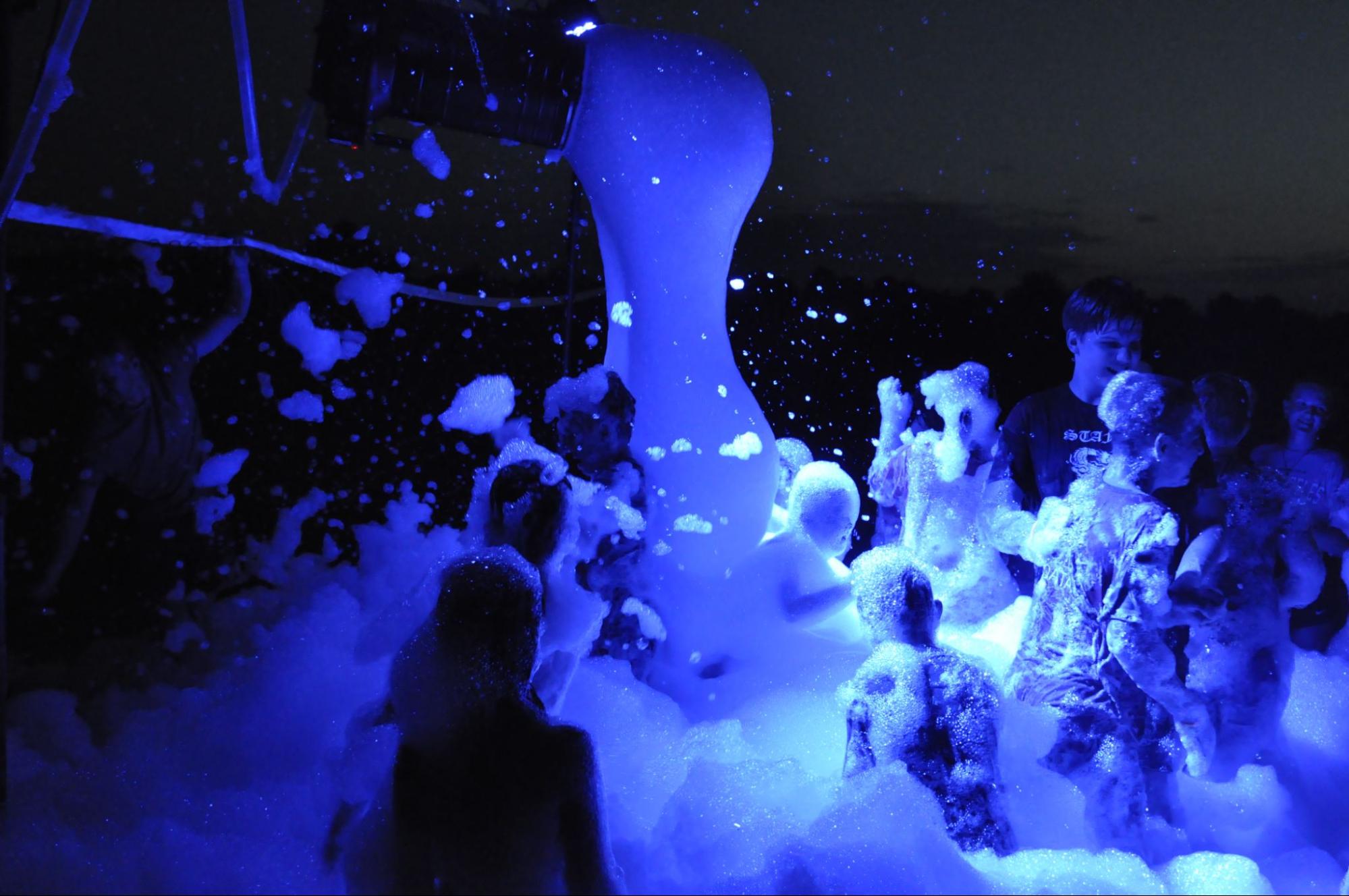
"Wi-Fi doesn't reach everywhere, and the mobile Internet is poor. This information noise is partially cut off. News on Telegram is no longer in front of you so often, so people start looking for other topics. Various master classes or events in the camp also help with this. The war gathers everyone to communicate, but we replace these thoughts with other topics due to diverse activities."
Rules are posted throughout the camp. One of them sounds like, "if you want it, you want it; if you don't want it, you don't want it." It applies to both volunteers and vacationers. If you want to participate in some activity, you take it; if you don't want to, you don't need to.
In the camp, people get to know each other and get closer. People chat in front of the fire, play mafia or participate in activities created by inventors. There was no camping when a few or even a dozen people would not cry before returning.
"Many say they will come here next year. We say that first, you will return to your cities, and then to us in the summer. When people leave the camp, we provide a form we developed together with psychologists, where they write down their psychological state at the time of arrival and departure. It is how we analyze whether we managed to achieve our goals. We don't know of such a case where a person didn't write about improving their condition at the end of the visit," says Vadym.
Vadym also emphasizes that there are people from different fields here, so for volunteers, it is an opportunity to make new acquaintances and start cooperating with new people. We have already done several collaborations:
"Nastia, the volunteer responsible for creating content, has friends who develop a special application for iOS. This program spreads information about Ukraine among foreigners, and they, in turn, can contribute. The developers had the issue of copyright to the works, so I advised them as a lawyer."
Changes are everywhere!
Most people supported the camp through volunteering. It is how they formed a great team in the digital space.
Six people in the camp perform the main work, and twelve work in the digital team. All of them are active, empathic people.
"Empathy, sociability, and the ability to quickly react to situations and make the right decisions are important for a volunteer. Although we are not experts in what we started doing, such as running Instagram, our motivation won over experience. If there is a desire to learn and proactivity, it gives results," says Ostap.
Camp volunteers are people who want to learn something new and want to help others. Ostap says it can be challenging to get out of your comfort zone and come to a camp with tents in an unfamiliar place to strangers. Don't forget that it's not an easy job.
One of these volunteers is Nastia. She is 21 years old. Since the beginning of russia's full-scale invasion, the girl has been helping displaced people in her village, where she was hiding from the war with her family. After doing all she could, she looked for other places to volunteer because she wanted to be helpful. She just finished studying to become a film director, and here she creates content for social media.
To become a volunteer at the camp, you need to fill out a special questionnaire. Then the team talks to the candidates; if everything suits everyone, people come here to try.
For vacationers, there's also a questionnaire through which the organizers make contact.
"The qualities that our volunteers have are the same qualities that we look for in vacationers. But everything is complicated because people may not manifest these qualities due to stress. However, when people want to change, develop and improve, we give them the opportunity. It is the mission and goal of the campsite. We don't look for the most complicated versions of how a person feels to lift them. Such cases require other qualified professionals and actions. We are there to help a person find new contacts and interests, switch their attention, and give them peace so that they have the strength to continue their work."
Does it work?
A nation of strong people
"I think it's like a dualistic concept of Yin and Yang. There is destruction and death on one side and goodness on the other. Victory goes to those who manage to occupy the largest territory. But we are here for the future—the victory and development of people as a nation of Ukrainians. We must develop in the right way. It is difficult for people who have lost their homes to move up. And if we can't provide help in time, we lose not one person but the people around them and the future generation. It is a well-known fact: if something has been hiding in a person for years, it becomes difficult to work with it. In addition, now there is little thorough recovery," Ostap shares his thoughts.
The camp organizers believe that the more healthy Ukrainians there are, who understand their emotions and can make decisions without stress, the better we will be able to support the economic front. The psychological recovery of adults today will also affect forming future generations; today's children need adults next to them who take responsibility and are ready to build their lives further. Humanitarian aid, the funds provide, and our support for the army, defending us from the enemy, are vital. But we also need a future that we can rebuild. It is the place where we think about it," Ostap adds.
How to help the camp?
The camp can host IDPs from flashpoints thanks to grants. But it also accepts vacationers on a commercial basis. Ostap says it's difficult to attract people to donate to the camp. At first, there was mistrust and misunderstanding of the idea of this initiative. If they manage to invite people commercially, then part of the profit is given to people's recovery. The camping is organized thanks to partners.
The leading partner is ChildFond in Germany, which takes care of children. That is why there are so many children in the camp. Bicycles for the camp were handed over from the Netherlands, and tents from the Ukrainian union in Canada.
Each of us can also support and help Restart. You can do it here.
Photo: Anastasia Tkachenko, Yurii Andriiev
Newsletter
Digest of the most interesting news: just about the main thing



